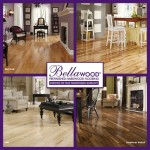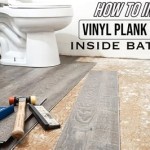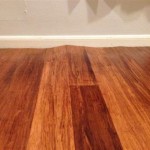Types of Vinyl Flooring Glue: A Comprehensive Guide
Selecting the appropriate adhesive is crucial for the successful installation and longevity of vinyl flooring. The type of glue used directly impacts the bond strength, moisture resistance, and overall performance of the flooring system. Understanding the different types of vinyl flooring glues and their specific applications is essential for both professional installers and DIY enthusiasts.
The world of vinyl flooring adhesives offers a spectrum of options, each formulated with unique chemical compositions and tailored for specific vinyl flooring types and subfloor materials. Choosing the correct glue ensures a secure and lasting bond, preventing issues such as bubbling, peeling, and movement. This guide provides a detailed examination of the various types of vinyl flooring glues available, offering insights into their characteristics, applications, and considerations for optimal performance. Proper selection and application of the appropriate adhesive are vital to a successful and aesthetically pleasing vinyl flooring installation.
Acrylic Adhesives
Acrylic adhesives represent a popular choice for vinyl flooring installations due to their versatility and ease of use. These water-based adhesives are formulated with acrylic polymers that provide a strong and flexible bond. Acrylic adhesives are generally low in volatile organic compounds (VOCs), making them an environmentally conscious choice for indoor environments. They are suitable for a wide range of vinyl flooring types, including sheet vinyl, vinyl tiles, and luxury vinyl planks (LVP).
One of the key advantages of acrylic adhesives is their wet-set application. This means the adhesive is applied to the subfloor and the vinyl flooring is laid into the wet adhesive bed. The wet-set application allows for a longer working time, providing installers with ample opportunity to position the flooring accurately. Acrylic adhesives typically offer excellent adhesion to various subfloor materials, including concrete, plywood, and existing resilient flooring. However, proper subfloor preparation is still crucial to ensure a strong and lasting bond.
Acrylic adhesives are available in different formulations to address specific needs. Some acrylic adhesives are designed for enhanced moisture resistance, making them suitable for installation in bathrooms, kitchens, and basements where exposure to moisture is likely. Others are formulated for higher bond strength, making them ideal for high-traffic areas or commercial applications. Careful consideration should be given to the specific requirements of the project when selecting an acrylic adhesive.
While acrylic adhesives offer numerous benefits, they are not without limitations. They may not be suitable for installations where the flooring will be subjected to extreme temperatures or heavy rolling loads. Furthermore, some acrylic adhesives may require a longer curing time compared to other types of adhesives. It's essential to follow the manufacturer's instructions regarding drying time and weight restrictions to ensure optimal performance.
Pressure-Sensitive Adhesives
Pressure-sensitive adhesives (PSAs) offer a unique approach to vinyl flooring installation. These adhesives are designed to create a bond when pressure is applied to the flooring material. Unlike wet-set adhesives, PSAs are applied to the subfloor and allowed to dry to a tacky state before the flooring is installed. The flooring is then rolled or pressed firmly into the adhesive, creating an instant bond.
The primary advantage of pressure-sensitive adhesives is their ease of use and quick bonding time. They eliminate the need to wait for the adhesive to dry or cure, allowing for faster installation and immediate foot traffic. PSAs are particularly well-suited for loose-lay vinyl flooring and some types of luxury vinyl tile (LVT). They offer a repositionable bond, which can be advantageous during installation, allowing for minor adjustments to the flooring's position.
Pressure-sensitive adhesives are available in various forms, including tapes, films, and trowelable adhesives. PSA tapes are commonly used for installing vinyl cove base and trim. PSA films are often pre-applied to the back of LVT and LVP, simplifying the installation process. Trowelable PSAs are applied to the subfloor with a trowel and allowed to dry to a tacky state before the flooring is installed.
While pressure-sensitive adhesives offer convenience and speed, they may not be suitable for all vinyl flooring applications. They generally provide a less permanent bond compared to wet-set adhesives, and they may not be appropriate for high-traffic areas or installations where the flooring will be subjected to heavy rolling loads. Furthermore, the subfloor must be clean, dry, and smooth to ensure proper adhesion with a PSA. Any imperfections or contaminants on the subfloor can compromise the bond strength.
Epoxy Adhesives
Epoxy adhesives represent a high-performance option for vinyl flooring installations requiring exceptional bond strength and durability. These two-part adhesives consist of a resin and a hardener that, when mixed, create a chemical reaction resulting in a rigid and highly resistant bond. Epoxy adhesives are known for their superior adhesion to a wide range of materials, including concrete, metal, and wood, making them suitable for challenging subfloor conditions.
One of the key advantages of epoxy adhesives is their ability to withstand extreme temperatures, heavy traffic, and exposure to chemicals and moisture. They are often used in commercial and industrial settings where the flooring is subjected to harsh conditions. Epoxy adhesives provide a waterproof bond, preventing moisture from penetrating the flooring system and causing damage to the subfloor.
Epoxy adhesives are typically applied with a notched trowel, ensuring a consistent adhesive thickness and proper contact with the flooring material. The curing time for epoxy adhesives can vary depending on the formulation and environmental conditions. It's essential to follow the manufacturer's instructions regarding mixing ratios, application techniques, and curing times to ensure optimal performance. Epoxy adhesives generally require a more skilled application process compared to water-based or pressure-sensitive adhesives.
Despite their superior performance characteristics, epoxy adhesives also have some drawbacks. They tend to be more expensive than other types of vinyl flooring glues. The mixing and application process can be more complex, requiring careful attention to detail. Furthermore, epoxy adhesives may have a higher VOC content compared to water-based adhesives, requiring proper ventilation during installation. The rigid nature of the epoxy bond may also make it less suitable for installations where some degree of flexibility is desired.
Urethane Adhesives
Urethane adhesives offer a balance of strength, flexibility, and moisture resistance, making them a versatile option for vinyl flooring installations. These solvent-free adhesives are based on polyurethane polymers, which provide a strong and durable bond while maintaining some degree of elasticity. Urethane adhesives are often used for installing sheet vinyl, LVT, and LVP in both residential and commercial settings.
One of the key advantages of urethane adhesives is their excellent moisture resistance. They can withstand exposure to damp conditions without losing bond strength, making them suitable for installation in bathrooms, kitchens, and basements. Urethane adhesives also offer good resistance to chemicals and solvents, making them ideal for applications where the flooring may be exposed to spills or cleaning agents.
Urethane adhesives are available in various formulations, including wet-set and dry-set options. Wet-set urethane adhesives are applied to the subfloor and the flooring is immediately installed into the adhesive bed. Dry-set urethane adhesives are allowed to partially dry before the flooring is installed, providing a tackier surface for bonding. The choice between wet-set and dry-set urethane adhesives depends on the specific requirements of the project and the type of vinyl flooring being installed.
While urethane adhesives offer numerous benefits, they also have some limitations. They tend to be more expensive than acrylic adhesives. The application process may require some expertise, as improper application can lead to bonding issues. Furthermore, urethane adhesives may have a longer curing time compared to pressure-sensitive adhesives. The subfloor must be clean, dry, and free of contaminants to ensure proper adhesion with a urethane adhesive.
Hybrid Polymer Adhesives
Hybrid polymer adhesives represent a relatively new category of vinyl flooring glues that combine the benefits of multiple adhesive technologies. These adhesives are formulated with a blend of polymers, such as silane-modified polymers (SMPs) or other advanced polymers, to provide exceptional performance characteristics. Hybrid polymer adhesives offer a strong, flexible, and moisture-resistant bond, making them suitable for a wide range of vinyl flooring applications.
One of the key advantages of hybrid polymer adhesives is their versatility. They can bond to a variety of subfloor materials, including concrete, wood, metal, and existing resilient flooring, without the need for special primers or surface preparation. Hybrid polymer adhesives are also low in VOCs, making them an environmentally friendly choice for indoor environments. They offer excellent resistance to chemicals, solvents, and UV radiation, ensuring a long-lasting and durable bond.
Hybrid polymer adhesives typically have a wet-set application, allowing for ample working time and easy repositioning of the flooring. They cure quickly and provide a strong initial grab, minimizing the risk of movement or shifting during installation. These adhesives are particularly well-suited for installing luxury vinyl planks (LVP) and luxury vinyl tiles (LVT), as they can accommodate dimensional changes in the flooring material due to temperature and humidity fluctuations.
While hybrid polymer adhesives offer numerous benefits, they may be more expensive than traditional acrylic or urethane adhesives. The application process may require some specialized tools or techniques, depending on the specific product. Furthermore, the long-term performance of hybrid polymer adhesives is still being evaluated compared to more established adhesive technologies. However, early indications suggest that hybrid polymer adhesives offer a promising solution for demanding vinyl flooring installations.

What S The Best Glue To Use For Vinyl Flooring Sprayidea

What S The Best Glue To Use For Vinyl Flooring Sprayidea

Floating Vinyl Plank Flooring Vs Glue Down 99cent Floor

6 Vinyl Flooring Types Explained And Compared Wood Beyond Blog

Luxury Vinyl Flooring Vs Glue Direct Wood

What Are The Main Types Of Wood Flooring Adhesives Esb

What S The Best Glue To Use For Vinyl Flooring Sprayidea

Types Of Vinyl Flooring The Home Depot

What Glue To Use For Vinyl Flooring Unitech

6 Vinyl Flooring Types Explained And Compared Wood Beyond Blog
Related Posts








